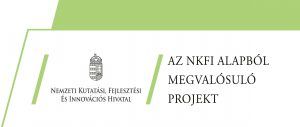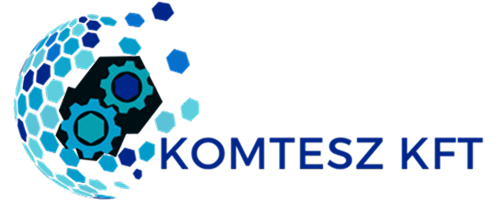ACTIVE PROJECTS - PRESS RELEASE | 2023-05-26
The project titled 'Development of a Chromatographic Device for the Automated Separation of Extracellular Vesicles and Other Biological Nanoparticles' has commenced under grant number 2021-1.1.4-GYORSÍTÓSÁV-2022-00072.
The project started on March 1, 2023, and is scheduled to conclude on February 28, 2026. The general background of the project is that a new diagnostic approach, based on a novel principle, has now reached the threshold of potential clinical application. Extracellular vesicles (EVs), which are biological nanoparticles responsible for intercellular communication, can serve as early indicators of various cancers and cardiovascular conditions. This can facilitate accurate diagnosis at an early stage and potentially eliminate the need for complex, high-risk, and costly procedures, such as biopsies.
However, a breakthrough in the practical application of EVs has yet to be achieved. The primary reasons for this are the lack of specific and high-throughput isolation methods and the absence of suitable devices to perform them. One of the main objectives of this project is to develop an automated device capable of isolating EVs from blood plasma (or other biological samples) while also characterizing their size distribution, concentration, and cellular origin. This capability alone makes it a valuable tool for further diagnostic applications. Additionally, a dedicated evaluation software will be developed for the detection module, integrating biochemical, biomedical, spectroscopic, mechanical, and genetic analysis aspects. This software will significantly enhance the user-friendliness of the device, making it easier to operate and interpret results.
The developed prototype device is an internationally relevant instrument designed with key engineering criteria, including ease of use, compact design, automated cleaning, reliability, and minimal maintenance requirements. Its operation requires only a basic level of technical training, significantly facilitating the widespread adoption of EV-based diagnostics and related research. This innovation is expected to streamline and accelerate sample analysis for numerous diseases, enabling earlier prevention and intervention. The full automation of the process represents a major advancement compared to current knowledge, as no comparable solution has yet emerged in either research or industry. Manual EV isolation requires advanced expertise in fields such as molecular biology, spectroscopy, flow chemistry, and chromatography. The software component of the system integrates these specialized considerations, providing a comprehensive evaluation platform with an intuitive graphical user interface, ensuring both professional-level analysis and user-friendly operation.
A further key objective of the project is to demonstrate the real-world applicability of the developed instrument and to maximise its efficiency in analysing specific biological samples. Using the prototype, we plan to isolate and characterise vesicles. Our goal is to determine the optimal combination of parameters that allows the device to collect the type of vesicles providing the most valuable information about the stage of a selected disease.
This will result in a refined protocol, which will serve as the foundation for developing further protocols tailored to specific target diseases and patient groups in the future. As the final outcome of the project, we aim to introduce an easy-to-use device that can be marketed globally for both clinical and research applications.
To minimise the uncertainty inherent in research and development projects, we rely on the expertise of a team comprising internationally recognised researchers who are actively engaged in this field. They possess the necessary mechanical, technical, and project management experience. Additionally, our collaborating partners contribute high-quality, large-scale instrumentation and extensive background knowledge to support the required analyses for the project.
The awarded grant enables the successful design and production of the device, as well as the completion of tests demonstrating its applicability.
Gödöllő, 2023.05.26.

